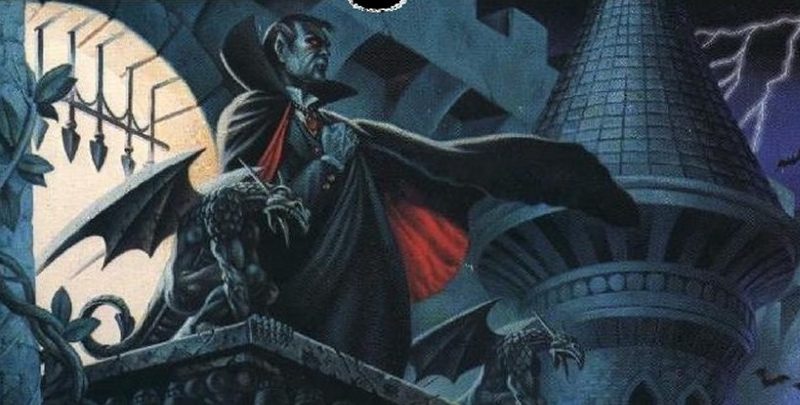How to Handle Player Turnover

A player has told you they’re leaving, or that you’re chasing them out of the group. If you’re a GM or you’re a player who handles the administrative part of the game, it’s likely you’ve had to face player turnover. Some games are blessed with decades of the same group of players enjoying countless adventures together. Sadly, most groups experience some turnover due to players moving cities, starting school, new job demands, having kids, new relationships or other important things outside the game.
This article looks at some strategies to avoid losing players, minimizing the impact of player turnover and effectively adding new players.
How to Avoid Losing Players
Most of this is pretty obvious advice, but all of it is easier said than done.
-
Run a Good Game
This is easier than it sounds. A good game should be a game that is exciting and fun for everyone. Make sure to create opportunities for all of your players to shine and keep the focus on the PCs not your awesome NPC they just met. In most cases, a bad game is going to see more turnover than a good game will.
-
Set Rules Together
Decide on your rules together and get them written down somewhere. Set your start time, who brings the food and in-game house rules in stone (or at least in a Word Document or post online).
-
Create a Schedule
Having a regular schedule that players can plan for is huge and can be the difference between a game that goes a few sessions and one that lasts for years. Use online tools such as Google Calendar to create a shared calendar for the group. If players never know when the game will be or if it will be running this week, they’ll prioritize other activities.
-
Get RSVPs
Ask you players to RSVP if they can attend the next session early in the week. This gets them thinking about the coming week and if anything could come up to prevent them from being able to attend the coming session. You might even want to use an online tool such as Google Calendar or a thread in your group chat. When players show up to a session and find out you’ll be playing Munchkin since only 3 of you showed up, they’ll get frustrated. My group is really good about providing RSVPs early in the week, so if we are going to be short on players we all know early on and can plan to run a small one-shot or cancel the session.
-
Remove the Bad Apple
Allowing a problem player to ruin a game for the other players is quick way to have your good players leave and look for another game. I’ve had to remove selfish and abusive players a couple of times. The frustration level of my players and myself returned to zero as soon as the player was gone.
-
Talk to Your Problem Player
Removing a new player is much easier than asking a long time player or friend to leave. A long time player deserves another chance. A quick chat can reveal that something else away from the game is the root of the recent issues and you can help (versus being another thing thrown on top of the worst week ever). In all cases treat the player with respect, even if they don’t return the courtesy.
-
Use Online Tools
Is one of your players moving away or traveling for an extended period of time? If you just hate to lose that player try connecting that player into your game over Discord, Skype or Google Hangouts. I’ve seen some face to face groups use Roll20 for their remote players. Being the odd person out can be frustrating, but for some groups this can work well and keep long time friends playing forever. Maybe your entire group is slowly drifting apart and getting busy. Reconnecting using an online tabletop could be the fix to get everyone around the table playing after the kids go to bed and avoiding the long commute via plane, train or automobile.
-
Ask for Feedback
5-10 sessions into a campaign I ask my players for some feedback. The results can be a hard truth to swallow. It is tough to get negative feedback about a game you put so much into. Finding out about areas that can be improved early on can be save a problem campaign or even move a campaign from good to legendary status. Here are the quick questions I asked early on in my current D&D 5e campaign. I left them pretty open (versus asking specifics) and kept the question count down.
- What is working well so far in the campaign?
- What is not working so well in the campaign?
- If you had to choose one enemy or monster that you are most looking forward to facing, what would it be?
How to Minimize the Impact of Player Turnover
Whether a PC leaves the campaign due to in-game death or the player moving on in real life, you can end up in a mess if you don’t plan for turnover.
-
Design your campaign to allow for PCs to easily come and go
My current campaign has my PCs acting as officers and crew on a ship. I play with people who were once complete strangers on Roll20, so turnover is little higher than in most face to face game among friends. Having your PCs meet a new PC here and there can work, but how do you handle players who might drop in and out throughout a campaign? Why fight it, if your campaign will have lots of PCs coming and going due to playing online, in a store or whatever, try setting up a guild, castle, tavern, ship or whatever as a home base to allow for PCs to easily turn into NPCs (and back again if someone returns) without disappearing. In the past I have even had a player take over one of those NPCs (Elven Ranger) when his PC died (Human Cleric), since the NPC was already part of the current adventure. Our current ship has 21 crew, 4 of which are formers PCs turned into NPCs and one NPC who is now a PC.
-
Don’t rest the entire campaign on the backstory of a single PC
Whether that PC’s player leaves or the PC dies, you’ll be in a mess. As mentioned above, a good game should create opportunities for all of your players to shine.
-
Always be recruiting
Just as you plan for anything and everything to happen in game, give some thought on what you would do if a player (or players) suddenly had to leave without warning. Keep an ongoing list of potential players who might be a good fit for your group. Visit your local store or gaming group and try out some organized play. If you play online, play or run some one-shots to meet more players.
How to Effectively Add New Players
So a player is leaving or has left your group. No worries, it’s time to move on and find a new player. This is easiest if it is the start of a new campaign, but the right new player can be added anytime.
-
Get a Referral
Other GMs, players or even the departing player know people who are looking for games. They can also let you know what type of player the potential recruit is and if they would be a good fit for your group. You might end up with a line-up of people asking to play if you a god among GMs who runs a legendary group.
-
Ask Basic Questions
Ask recruits to complete a questionnaire or conduct an interview to make sure your game is a good match for both sides. When I am recruiting for Roll20 I ask some basics such as:
- Do you have a Discord/Skype account?
- Do you have a good headset/microphone?
- Do you have access to a quiet room to play in?
- Will you be available each week to play at the specified time?
- Do you have any experience playing Rules X?
-
Ask Harder Questions Too
I ask recruits some play-style/preference questions to make sure they are a good match for the type of game my group and I are playing. My questions are tailored to my GM style and the type of game I’m running for the group. These questions are leading on purpose to both give some hints to the player and steer them towards providing the information I need. If you want to eliminate your influence on their answers make the questions more open ended like the feedback questions I provided earlier in this article.
- Describe your idea of a fun gaming session. Do you have a short story about an awesome gaming session you’d like to share?
- Do you like killing monsters and getting loot or do you prefer that things like that are more part of the story?
- Do you like skill challenges, puzzle and traps?
- What is your favorite monster and why?
- Are you comfortable talking in character (no need for voices or anything) vs “saying my character does this”?
- How do you feel when a DM ignores rules for the overall benefit to the group/story?
-
Run a One-Shot
I find the best way to get to know a player is to play with them. Tabletop RPGs reveal a ton about people and someone you get along with away from the table might not be someone who you enjoy playing with. Run a one-shot with the new player and some or all of your existing players to see if they are a good fit for you and your current group.
Please share your own stories and advice in the comments below. See you next week.
p.s. The Adventure Building series will resume next week.



